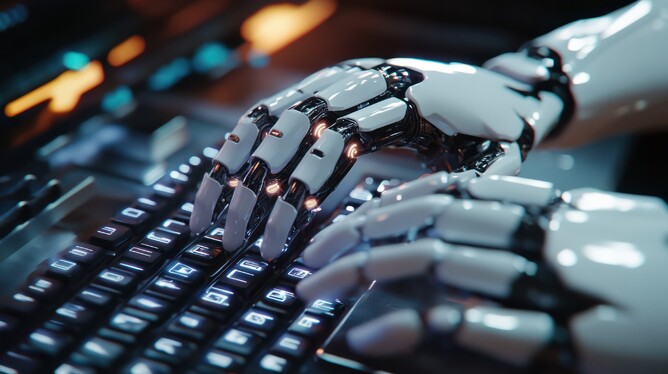Everywhere we look we see teams frothing about AI. The outputs are plentiful. The efforts are minimal. It all feels too good to be true.
Here at HMC we’re embracing the platforms too where we can, of course. No secrets here. The learning curve is steep and right now the dopamine hits are coming thick and fast.
But we’re seeing more and more business leaders seek us out for content of the very human kind – think highly personalised think pieces devoid of sub-headers and the em dash.
Figuring out when to go deep, and to go human, is fast becoming a flex for leaders who want an edge. And we’re here for it.
While anything and everything now seems to be at the fingertips of content creators, there’s an uneasy feeling in the air. There’s an urge to scratch beyond the shiny surface as we scroll and it’s growing.
The desire to keep up and be as ‘noisy’ as one's competitors online is natural, but the astute leader is realising most ‘content’ is quickly falling into the category of background noise and is already being tuned out. The human soul is craving realness.
All of this is having a massive impact on communications and marketing professionals, many now spending a large part of their days prompting, editing and refining AI output.
Right now, they’re riding the high that comes from learning something new and their productivity is through the roof. Everyone is patting themselves on the back.
What’s not being discussed, however, is the atrophy of creativity and higher-level thinking skills – the stuff that drove most people to the profession in the first place.
Navigating crises and change, for instance, is always going to rely on these skills.
Will our staff have the capability in two- or five-years’ time, to problem solve when it really counts? Maybe not.
Will they be fulfilled in their jobs for long now their craft is effectively stitching together content made by machines? Probably not, according to new research just out from MIT.
We’re loathe to rain on the AI parade but genuinely think it’s a conversation that needs to happen.
We don’t have all the answers, but we have a few that are working well for clients who see the enormous value of being authentically human in an era that smacks of inauthenticity.

